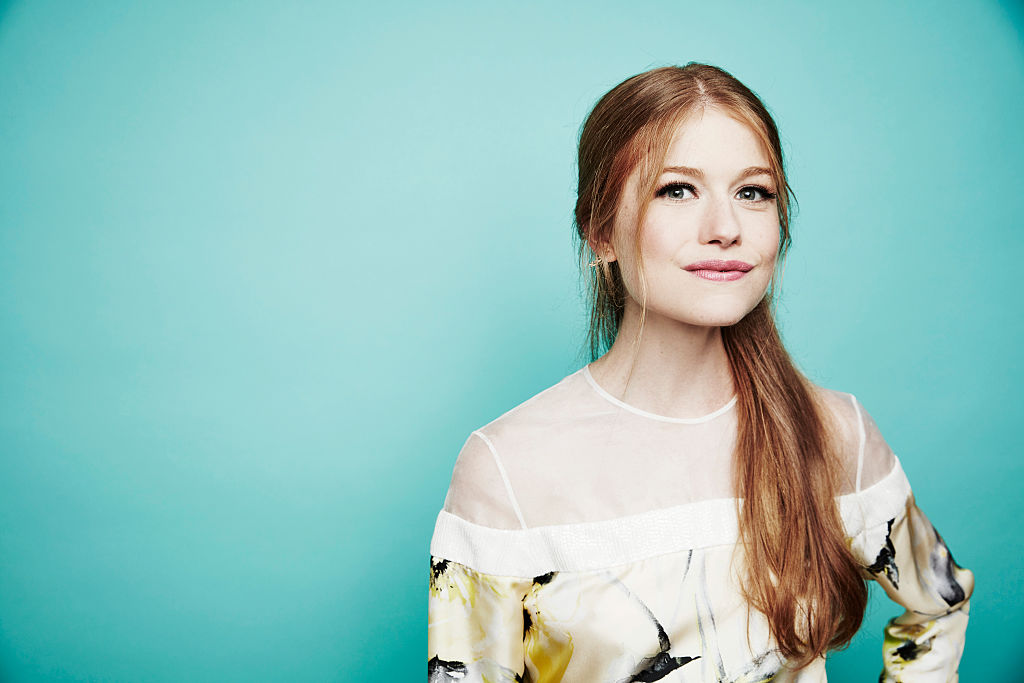
In 1970, a group of women who worked at Newsweek filed a historic class-action lawsuit against their employer. These women, who did all the research and oftentimes a lot of the writing, did not have any opportunity to move up beyond the role of research. They charged the magazine with sex discrimination when it came to hiring and promotion, and demanded better. Their actions won them new opportunities at Newsweek and had a ripple effect at other publications — and other offices — around the country.
This landmark suit inspired the new show Good Girls Revolt, which debuts on Amazon Friday. Motto spoke with one of its stars, Genevieve Angelson, about her role on the show as Patti Robinson and what she learned about women’s rights and gender equality by stepping back into the past.
How she felt reading the script for Good Girls Revolt:
“I’m used to playing the girlfriend or the Type-A sidekick character on television, so the role of Patti — a wild-child hippie who’s also incredibly driven to become a journalist — was very inspiring. She’s a girl who likes to smoke and f-ck and get the story and make mistakes. She has dreams and ambitions, and it’s such a pleasure and a thrill to be able to play her.”
What it was like stepping into the 1960s office:
“It’s painful to portray the situations that the characters encounter on the show. As Patti, I am underestimated, belittled, shut out, excluded and not recognized for being smart and capable. The most frustrating thing, however, was Patti and her coworkers not having the language to describe moments of sexual discrimination and harassment. (The term “sexual harassment” wasn’t coined until 1975.) That made me angry and exhausted and emotional.
It was also eye-opening to see that some women at the time accepted the idea that they weren’t supposed to write or do anything more than support their male colleagues. There was so little confidence to challenge that ideal, in part because many women didn’t know anything different, or didn’t think they could do anything different.”
On the state of women’s rights today:
“The lawsuit changed things in a big way for women. It helped put things like equal opportunity at work for women in motion. Now, of course, it’s commonplace for women to be running businesses, corporations and magazines, but there is still so much work to be done. There are a thousand million cracks in the glass ceiling that the women portrayed on Good Girls Revolt could have never dreamed up happening, but that doesn’t mean that this is a dated story. Women’s equality in the workplace, as with everywhere else, is still a work in progress.
Harassment and discrimination is now, it seems, much more subtle. It’s in an inappropriate comment or touch that is hard to respond to in the moment. And we’re still seeing high profile cases, like with Gretchen Carlson’s allegations against Roger Ailes, or even all the women coming forward to accuse Donald Trump of harassment and assault. It’s easy to ask, ‘Why didn’t these women come out before?’ But that’s the nature of sexual discrimination. It happens slowly and subtly. The problem has become less overt than it was in the ’60s and ’70s, but it still exists.
I think it’s important to note on our show that we have a female lead, a female creator and producers and writers. Good Girls Revolt is also inspired by a book written by one of the women who sued Newsweek. Everything about this show has a female focus. And yes, of course it was intentional. But it was also possible.”
This interview has been edited and condensed.
More Must-Reads From TIME
- The 100 Most Influential People of 2024
- Coco Gauff Is Playing for Herself Now
- Scenes From Pro-Palestinian Encampments Across U.S. Universities
- 6 Compliments That Land Every Time
- If You're Dating Right Now , You're Brave: Column
- The AI That Could Heal a Divided Internet
- Fallout Is a Brilliant Model for the Future of Video Game Adaptations
- Want Weekly Recs on What to Watch, Read, and More? Sign Up for Worth Your Time
Contact us at letters@time.com